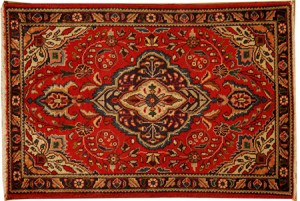FOR IMMEDIATE RELEASE
Consumer Watchdog Alert!
JPMorgan Chase Bank Targets Customers with Deceptive Advertising Campaign
“Chase Quick Deposit” Ads Tout “Free” Product While Hiding Fees in Excess of $1000
A $500 Early Termination Fee Awaits Unsuspecting Customers
New York, June 17, 2010 – Customers of JPMorgan Chase Bank are being alerted to a deceptive new advertising campaign for Chase Quick Deposit which could cost unsuspecting customers in excess of $1000. On June 10, 2010, JPMorgan Chase mass marketed emails to customers in a number of states, including California, which advertised Chase Quick Deposit, a new service that allows checking account holders to scan and deposit checks into their accounts from home or office. The advertisement promises a “free” scanner provided by Chase and a $50 bonus after customers make their first deposit. Customers are given the option to “Redeem Bonus” or “Enroll Now.” The ad makes no mention of any fees in the body of the copy. When customers click “Redeem Bonus” or “Enroll Now,” they are taken to another page where they are asked to click a button to enroll. There is no mention of any fees on this submission page either.
JPMorgan Chase Bank fails to transparently inform its customers that anyone enrolling in Chase Quick Deposit agrees to a fee of $50 per month and a mandatory two-year contract, for a total required commitment of $1200. Any customer who discontinues the service prior to the termination of the two-year contract is charged a mandatory cancellation fee of $500.
Two Chase Bank representatives, online supervisor Gloria Lawson and online unit manager Carrie Ayers, stated that customers are given 30 days to opt out of the contract after enrolling, yet neither of the representatives would provide any documentation of the purported 30-day policy, nor is it mentioned in Chase advertisements. Furthermore, by the time most customers are charged their first monthly fee – not prior to July 31, 2010 according to Chase – the purported 30-day trial will have expired anyway and customers will be locked into the 2-year contract.
JPMorgan Chase Bank has added a carefully placed note mentioning the fees and contractual requirements in fine print outside the viewing area, well below the Quick Deposit advertisement, the page footer and the two footnotes.
An example of the Chase Quick Deposit advertisement can be found at the following link on Chase’s website:
https://www.chase.com/ccp/index.jsp?pg_name=ccpmapp/shared/marketing/page/QD_Q210_P4&ID=0000010842
Anyone targeted by JPMorgan Chase’s Quick Deposit advertisement is urged to report JPMorgan Chase to the following:
Federal Trade Commission
Consumer Response Center
600 Pennsylvania Avenue, NW
Washington, DC 20580
1-877-FTC-HELP
Comptroller of the Currency
Customer Assistance Group
1301 McKinney Street, Suite 3450
Houston, TX 77010
1-800-613-6743
Disclaimer
This article was submitted by one of our readers. Penciltrick cannot make any claims as to its authenticity but the article was accepted on a good faith belief that it is an accurate and truthful account of the events listed.
